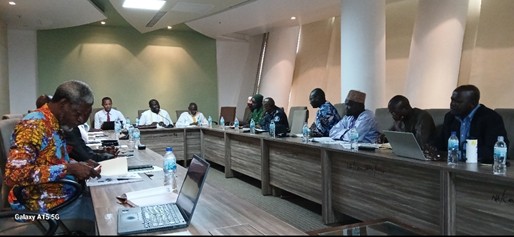
Central Badibou’s representative initiated the session, which brought together officials, experts, and lawmakers to outline potential solutions to this complex issue.
Saikou Sanyang, an official from the Ministry of Agriculture, highlighted climate change as a key driver. Northern Senegal and The Gambia are experiencing reduced rainfall, which forces herders to seek water and grazing lands elsewhere.
He noted: “Unregulated migration routes and a lack of formal agreements between The Gambia and Senegal exacerbate the problem, leading to overgrazing, deforestation, and clashes with local communities.”
Njagga Touray from the National Environment Agency (NEA), warned that the tree-cutting practices of pastoralists are “systematically killing” forests, while Emmanuel M. Mendy from the Department of Livestock Services (DLS) raised concerns over the spread of disease and armed herders intimidating local residents.
Mendy also revealed that agreements permitting pastoralists to enter The Gambia from December to May are poorly enforced, partly due to insufficient support from local leaders. The Forestry Department noted challenges in tracking incoming herds, which often mix with local livestock.
Babucarr Jallow, deputy permanent secretary (DPS) of the Environment Ministry, Urged alignment with ECOWAS protocols to formalize pastoralist routes and improve sustainable resource management. He recommended for the creation of water points and grazing zones to reduce pressure on farmland; enforcing livestock movement permits and health checks to curb disease spread; and revising laws, such as the Animal Health Act to address current challenges.
He also suggested taxing incoming herds and compensating locals for crop damage and strengthening dialogue with Senegalese counterparts and community leaders.
Momodou Darboe from the Gambia Livestock Marketing Association (GLMA), emphasised the importance of reviving bylaws from previous forestry projects.
A representative from the Gambia Police Force (GPF) stressed the need for public sensitization and monitoring.
The committees plan to review key documents, including the Animal Health Act and previous conventions to strengthen legal frameworks. Proposed actions also include zoning land for grazing and enhancing security collaboration.
As climate and socio-economic pressures mount, the meeting underscored the need for swift, coordinated action to balance the livelihoods of pastoralists with environmental protection and the welfare of local communities.




